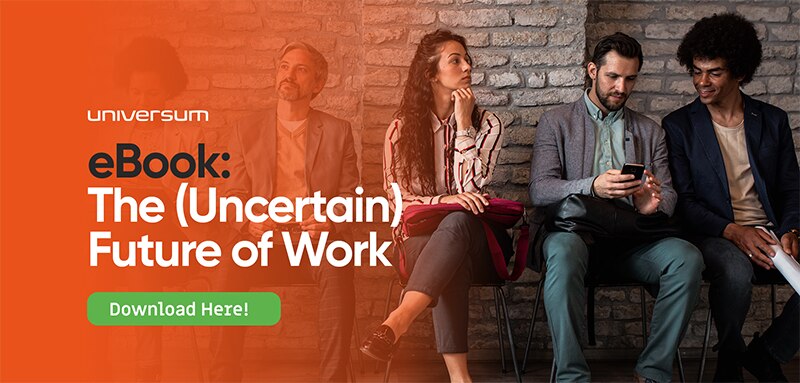Earlier this year, the global employer branding experts Universum surveyed over 650 of the world’s leading employers in their “Future of Work Survey”. The research analyses how hybrid and virtual working affects a wide range of talent issues – from diversity, equity, and inclusion (DEI), to work satisfaction and employee engagement. The results reveal that employee experience is taking centre stage.
As employers negotiate the world recruitment reshaped by the pandemic, many are rethinking how their work gets done, re-evaluating their cultures, and adjusting employment policies to ensure they reflect their new emerging vision of the future of work.
It goes without saying that candidates and employees are doing the same. Workers are reframing their priorities in life and assessing how their jobs align with their values and aspirations.
Virtual and Hybrid Working
Much of the current conversation is focused on the merits of virtual or hybrid work. Working with INSEAD Emerging Markets Institute, the Universum study asked talent leaders to reflect on why they chose a virtual work policy and why they did not. The results highlight that employers who limit work-from-home options are more likely to prioritise a key employer centred issue, productivity.
Productivity is, of course, a consideration. However, as employers build their long-term plans for hybrid working, it’s essential to take a nuanced approach, says Mark Mortensen, associate professor of organisational behaviour at INSEAD Emerging Markets Institute.
Mortensen argues there are three key elements employers must consider as they plan for the future, and they must define how they will measure performance under these new norms:
Productivity: To what extent will hybrid work affect employees’ productivity, and what mix of work formats will balance productivity needs and employees’ work preferences?
Staffing: Will hybrid work (or lack it) increase turnover? What amount of flexibility will meet employees’ needs? Mortensen argues that flexibility “is becoming a new battleground in the war for talent.”
Culture: How does a company communicate its identity and values when employees do not typically face to face?
By separating these unique issues, argues Mortensen, employers can plan, measure, and optimise each one. This, instead of focusing too heavily on a single issue, can shape planning and strategy.
From now on, employers also need to understand that they may no longer be calling the shots. The legacy of COVID-19 is a subtle shift away from top-down decision making about employee experience toward data-driven, employee-first strategies that boost attraction, retention and loyalty.

